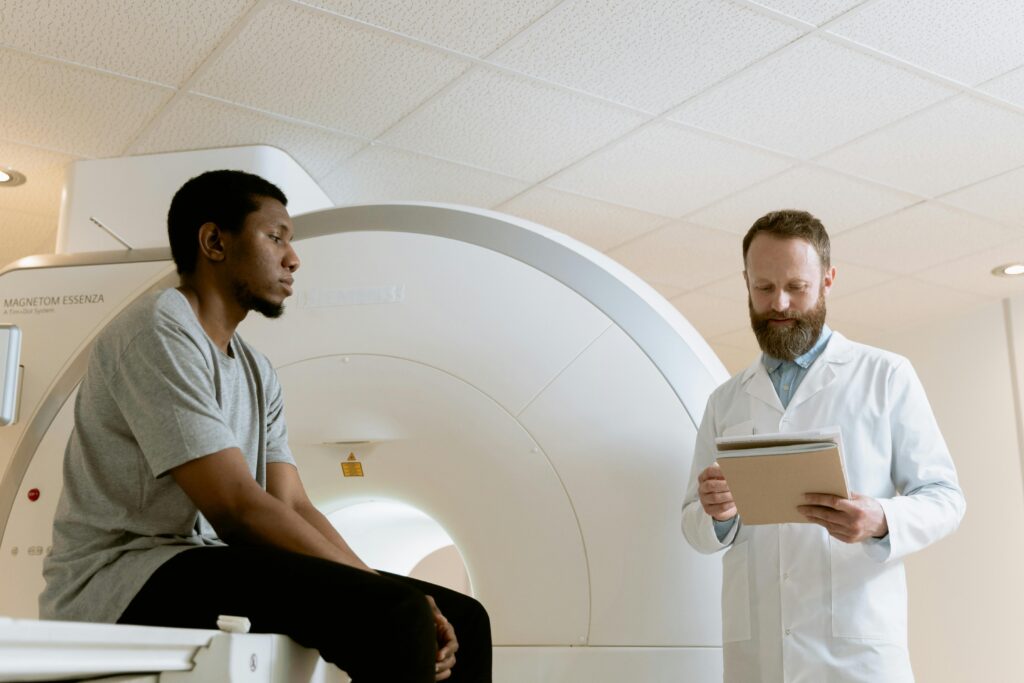
Electronic Health Records (EHR Electronic Health Records (EHR) have revolutionized the way healthcare providers manage patient information, replacing traditional paper-based records with digital systems that streamline documentation, improve communication, and enhance patient safety. Key benefits of EHR include:Centralized Patient Information: EHR systems consolidate patient medical history, lab results, medication records,
and other critical data into a single, accessible platform, facilitating better care coordination and decision-making.EHR streamlines administrative tasks such as appointment scheduling, billing, and prescription management, reducing paperwork and administrative burdens for healthcare providers.EHR systems include built-in checks and alerts to prevent medication errors, allergies, and adverse drug interactions, improving patient safety and reducing the risk of medical errors.
Telemedicine has emerged as a game-changer in healthcare delivery, enabling patients to access medical care remotely through virtual consultations, video conferences, and remote monitoring technologies. Telemedicine offers several advantages: Telemedicine eliminates geographical barriers, allowing patients in rural or underserved areas to consult with healthcare providers without the need for travel.
Patients can schedule virtual appointments at their convenience, reducing wait times and minimizing disruptions to their daily lives. Telemedicine can lead to cost savings for patients by reducing travel expenses, time off work, and other associated costsRobotic surgery, also known as robot-assisted surgery, combines advanced robotic technology with surgical precision to perform minimally invasive procedures with greater accuracy and precision. Key benefits of robotic surgery include:
Robotic surgical systems offer greater precision, dexterity, and control than traditional surgical techniques, allowing surgeons to perform complex procedures with increased accuracy.Robotic surgery typically involves smaller incisions, reduced blood loss, and faster recovery times compared to traditional open surgery, leading to shorter hospital stays and less postoperative pain.
Studies have shown that robotic surgery can lead to improved surgical outcomes, including reduced complications, shorter recovery times, and better cosmetic results.Artificial Intelligence (AI) is revolutionizing healthcare by enabling computers to analyze complex medical data, identify patterns, and make predictions to support clinical decision-making. AI offers several benefits in hospital settings:
AI algorithms can analyze medical images, such as X-rays, MRIs, and CT scans, to assist radiologists and other healthcare providers in diagnosing diseases and identifying abnormalities.AI can analyze patient data to develop personalized treatment plans based on individual health profiles, genetic factors, and treatment response, leading to more targeted and effective care.
AI-powered predictive analytics can forecast patient outcomes, identify high-risk individuals, and intervene early to prevent complications, reducing hospital readmissions and improving patient outcomes .As hospitals increasingly rely on digital technologies to deliver care, cybersecurity has become a critical concern to safeguard patient data, protect against cyber threats, and ensure compliance with privacy regulations. Key aspects of hospital cybersecurity include:



